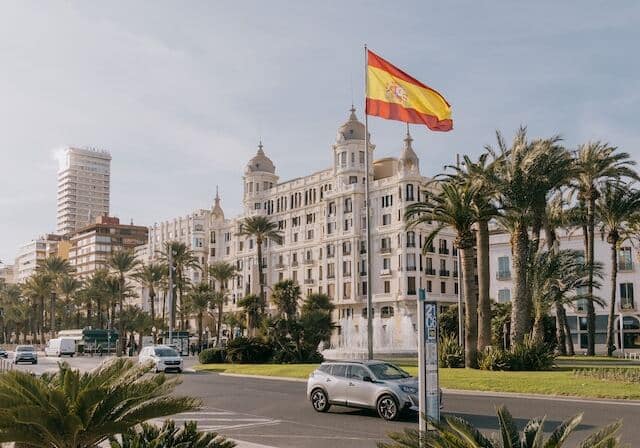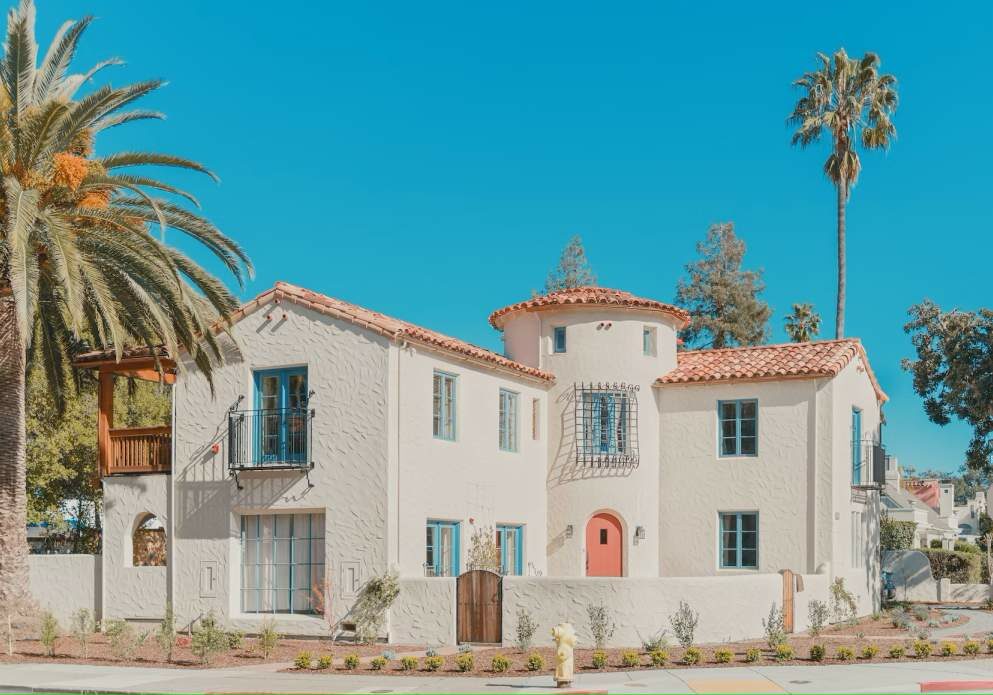Buying property in Spain is a fantastic life investment. Acquiring a home in one of Europe’s top countries offering a high standard of living not only provides you with a valuable investment but also offers the opportunity to secure long-term residency in Spain through a Spanish Golden Visa.
The real estate landscape in Spain has experienced both peaks and troughs, with Spanish property prices stagnating and real estate agents reporting few sales. Nonetheless, real estate retention is widely practiced in Spain, and foreigners buying a property in Spain can anticipate long-term value appreciation.
This guide will help you navigate the Spanish economy, buy a property in Spain, and deal with property taxes.
Why buy property in Spain?
The Spanish property market stands out among foreigners buying property overseas for several reasons.
Seven reasons to purchase real estate in Spain
- Buying a property in Spain valued at least €500,000 grants eligibility to one of the most sought-after Golden Visas in Europe and a long-term Spanish residence permit.
- Own a home in regions with year-round sunny weather and mild winters.
- Enjoy a high quality of life in a country with a much lower cost of living than the US, Canada, and European countries like France, Germany, and the UK.
- Acquire real estate in consistently sought-after Spanish tourist destinations, ensuring a steady stream of rental income from vacationers.
- Compared to the United States and most Western European countries, Spain’s property prices are more affordable, offering good value for investment.
- Despite occasional property market fluctuations, Spanish real estate historically shows long-term appreciation and is primed for continued growth, with an increasing number of Spanish properties sold to foreign buyers.
- The country is well connected globally, with direct flights to cities throughout the US and worldwide.
Spanish Property Ownership and Market History

Spain has a strong cultural preference for homeownership, with many considering it a key aspect of personal and familial success. Past Spanish governments encouraged it, and it’s not uncommon for families to pool resources to help one another with buying property.
The culture of homeownership has created a steady appreciation of property prices. Still, the 2008 financial crisis rocked the Spanish economy, leading to a sharp decline in property values and leaving many homeowners with depreciated assets and economic challenges.
The Spanish property market has since rebounded, although it’s yet to reach pre-global financial crisis levels, meaning foreign buyers have opportunities to invest in one of the best places to buy property in Europe at affordable prices.
Can Americans buy Spanish real estate?
Foreign nationals can buy or rent property in Spain without authorization or restrictions. There are no specific legal requirements for Americans moving to Spain and other foreigners. The Spanish government actively encourages foreign ownership through the Spain Golden Visa program, granting property buyers a renewable residence permit by meeting the minimum purchase price threshold.
In Spain, as an American, start by leveraging the accessibility of the real estate market. Americans also take advantage of a wide range of Spanish property types, Spanish property prices, the streamlined acquisition process for expat buyers, and the right to live on a property in Spain long-term. Americans buy property in Spain since it offers a great change in culture and access to an amazing cuisine.
While foreigners are free to buy a property in Spain, certain aspects of property buying may be challenging or accessible only to Spanish residents, such as large deposits to secure a mortgage or specific financing options available to those with a Spanish bank account.
How do you buy Spanish property?
There are no restrictions on buying real estate in Spain as a foreigner, whether it’s your first or 20th investment property. You just need to find the right property (either by yourself or using a real estate agent) and make sure that all the paperwork is in order to proceed with the transaction.
The purchasing process in Spain is quite complex, but this comprehensive step-by-step guide should make it easier to buy property in Spain.
Here is a guide on the process of buying property in Spain:
- Find a property: Searching and purchasing a property in Spain is relatively straightforward with Spain’s established foreign buyer property market. However, finding the right property for you requires careful consideration of various factors. A real estate agency can assist in finding suitable Spanish Properties for inexperienced foreign buyers. Real estate websites like Fotocasa and even British real estate websites like Rightmove have vast inventories of Spanish properties for sale. The asking price of a property may vary on the region, but you can always try to negotiate the asking price.
- Set your budget: All buyers have different circumstances and needs. A foreign buyer may be motivated to purchase Spanish property for a primary residence, vacation home, or investment property. Determine these factors and set your budget for your new property.
- Apply for an NIE: Foreigners in Spain to rent out or live in must obtain a Número de Identificación de Extranjeros (NIE), a foreigners’ tax identification number, which is a crucial requirement for various transactions, including property purchases in Spain.
- Acquire financing: While there are cash buyers, some investors require financing to purchase property. Buying properties abroad through mortgage lenders may require more demanding criteria, such as a larger down payment. The easiest way to complete the property transaction is by having a bank account in Spain, but you are free to choose a payment method that suits you best. Speak with a Spanish mortgage provider to find out what’s needed to secure a mortgage as a foreign buyer.
- Sign a purchase agreement: After identifying the property you wish to purchase, the next step involves signing a purchase agreement, a legal document overseen by the property lawyer. In Spain, a purchase agreement, referred to as Contrato de Reserva, temporarily removes the property from the market, providing a specified timeframe for completing due diligence checks and other formalities associated with the purchase. Hiring a property lawyer is the safest way to sign a purchase agreement to ensure the contracts are legally sound. Also, make sure that the sums paid are included in both the deposit contract and the sale contract.
- Complete due diligence: Your legal representative will liaise with the property land registry office (Registro de la Propiedad) to ensure no outstanding debts are associated with the property. At this point, buyers are recommended to conduct a thorough building survey of the house, preferably through an RICS-accredited surveyor.
- Sign and pay your deposit: Buyers must sign a preliminary agreement, referred to as the Contrato Privado de Compraventa, and pay a deposit of ten percent of the purchase price. You are generally expected to make the deposit payment within ten days after signing the agreement, although the specific values and deadlines may vary, depending on the purchase agreement.
- Register new ownership: The purchase is finalized when both you and the seller sign the Escritura de Compraventa, signifying the transfer of the title deed for a house in Spain. With the Escritura de Compraventa, you can register the sale with the Notaria Publica (notary) and pay the land registration fee.
Types of Spanish Property
A diverse selection of property types is available on the real estate market.
- Apartments: For city dwellers in Spain, the predominant housing choice is often a flat or apartment, referred to as a ‘piso’ in Spanish. Apartment blocks are featured across the country, with properties varying in quality and size, from compact studios to spacious two-story duplexes and penthouses.
- Villas: A fully detached house is known as a villa in Spain. Villas are relatively uncommon among the Spanish population compared to their popularity in the UK and the US. However, villas are littered across the Spanish coastline and in rural areas.
- Townhouses: A ‘casa adosada’ is the equivalent of a townhouse in the United States, a compact, dethatched, or semi-detached home. Townhouses often feature communal gardens and shared swimming pools, especially on the Mediterranean coast.
- Quad Houses: Spanish quad houses are homes connected on two perpendicular sides to two other houses, each with its private entrance at the front or side. This type of property in Spain is becoming increasingly popular, these homes offer a unique blend of privacy and community living.
- Cave houses: In the southern regions of Spain, including the renowned Costas in Granada, it is not uncommon to come across cave houses. Known as trogladitas in Spain, most are located in Altiplano de Granada, a mountainous Andalusia region between the Sierra Nevada and the Sierra de Castril. The rock walls of cave homes offer natural insulation and remain pleasantly cool during Spain’s hot summers, contributing to inherent energy efficiency and a distinctive architectural experience.
Financing a Spanish Property Purchase

- BBVA
- La Caixa
- Santander
- Bankia
Getting a Spanish bank account is the first step in buying a property in Spain.
Nevertheless, mortgages for non-residents are likely to have more restrictions than those available for full-time Spanish residents.
It is common practice for mortgage providers to require buyers to pay a 10 to 20 percent deposit when finalizing house sales. Foreign nationals can expect a mortgage agreement to require a 20 to 30 percent down payment when purchasing a house in Spain.
Based on a quote from Santander for a 65-year-old American retiree purchasing a second house in Spain, the minimum down payment would be 20 percent with a mortgage period of 15 years. Certain international banks offer mortgages to foreign nationals, depending on their nationality and financial circumstances.
Finding a House in Spain

Popular Spanish estate agents include:
- Fotocasa
- Idealista
- Kyero
The overseas buying process is straightforward, particularly through an established British estate agent like Rightmove; however, this comes with its own risk criteria, and foreigners should view any properties they consider buying.
Where to purchase property in Spain?
You can buy property anywhere in Spain. Ultimately, it comes down to what region you prefer and the lifestyle you want. Moving to a new country might be stressful, but it’s important to find a kind and welcoming community that will help you fit in when you buy properties in Spain.
Below are some of the best places to buy property in Spain.
Costa del Sol
Located in Andalusia, Costa del Sol is one of Spain’s most famous places to get holiday homes. Foreigners are drawn to the amazing climate and fantastic beaches, and you’ll find that life is very relaxed and charming, with plenty of activities and enjoyment available. Málaga and Marbella are also some of the best cities to live in Spain and buy property in Spain.
Barcelona
Barcelona is the central city of Catalonia and one of the most famous destinations in the world. The city is multicultural and bustling with cultural activities and entrepreneurial spirit. In a nutshell, Barcelona is a fantastic place to live in and ideally located by the sea. With the city being extremely popular among tourists, it is a very good place to invest in rental apartments. Be aware that real estate property in Barcelona is more expensive than in other Spanish locations.
Madrid
Madrid, the Spanish capital, is famous for having a good work-life balance, offering plenty of jobs and entertainment. This urban area has excellent museums, restaurants, and bars. Its infrastructure and facilities are very developed, making it easy to move around the city. As it is the capital city, real estate prices are higher than average.
Valencia
Valencia is the third-largest city in Spain. Its climate is pleasant and mild, and it is appreciated for its relaxed pace of living – way more peaceful than Madrid and Barcelona. Located close to the sea, Valencia has a large port area with a beautiful promenade filled with bars and restaurants.
It is also famous for its many green spaces. The real estate in Valencia is considerably cheaper than in Madrid and Barcelona. On top of that, the Valencian community is warm and welcoming.
Balearic and Canary Islands
Famous for their beauty and idyllic beaches, the Balearic and Canary Islands are some of the best places to invest in. Whether in Menorca, Mallorca, Ibiza in the Balearic islands, or Tenerife in the Canary Islands, you will find fantastic properties right by the sea.
Not only is the quality of life outstanding but owning a property in Spain brings high returns on investments as, during tourist seasons, demand for rental properties is high.
Taxes on Buying Property in Spain
Aspiring property buyers, including both foreigners and Spanish residents, must pay taxes when buying a house in Spain. On top of that, there will be other legal fees and tax implications you need to cover for your property transaction.
Tax | Amount | Property Type |
Stamp duty (title deed tax) | 0.5 percent to 1.5 percent of property value, depending on the region | New homes |
VAT (Value-Added Tax) | 10 percent of the property value | New homes |
Property transfer tax | 6 percent to 10 percent of the property value | Resale homes |
Notary costs | 0.03 percent – 0.45 percent of property value | All homes |
Property registry fee | 0.2 – 1.8 percent of property value | All homes |
In addition to property transfer tax, property lawyer legal fees, land registry, and other fees paid during the purchase process, buyer pays additional Spanish taxes.
- Capital Gains Tax: It applies to any profit made from the sale of a property from the original property price. The tax rate is progressive, from 19 to 23 percent. Buyers are eligible for tax relief if the property in Spain is their primary residence or they have lived there for several years. Additionally, individuals over 65 who have lived in their Spanish homes for at least three years are exempt from paying capital gains tax.
- Property Tax: Property owners must pay annual property taxes, called Impuesto sobre Bienes Inmuebles (IBI), at a rate ranging from 0.4 percent to 1.1 percent of the property’s cadastral valuation.
- Title Deed Tax: In Spain, the title deed tax, or “Impuesto de Actos Jurídicos Documentados” (AJD), is a tax on notarial documents inscribed in public registries, like property deeds. The rate varies by region, typically between 0.5% and 1.5% of the property’s value, and is paid by the buyer during property transactions. International buyers should learn more about this.
Average House Prices in Spain
Below is an estimation of Spain’s real estate market average prices per square meter by region, according to Numbeo:
City | Price Per M² in the City Center | Price Per M² Outside the City Center | Average Price for a 100 M² Property |
Barcelona | €5,810 | €3,445 | €463,000 |
Madrid | €4,010 | €2,460 | €323,000 |
Valencia | €2,070 | €1,350 | €171,000 |
Sevilla | €3,290 | €1,915 | €260,000 |
Malaga | €3,615 | €2,290 | €295,000 |
Average house prices: Spain vs the US
City | Price Per M² in the City Center | Price Per M² Outside the City Center | Average Price for a 100 M² Property |
Spain | €3,350 | €2,000 | €267,000 |
United States | €7,400 | €5,020 | €621,000 |
Get Residency by Buying Property in Spain
Spain joined the reigns of countries offering Golden Visa programs, granting Spanish property buyers the right to live in Spain. The Spain Golden Visa program allows investors and their family members to receive Spanish residency in exchange for an investment in real estate of a minimum value of €500,000.
The initial residence permit is valid for two years and renewable for three, after which permit holders can apply for permanent residency. A total of ten years of residency allows visa holders to qualify for Spanish citizenship and a Spanish passport.
Other Considerations for Purchasing Property in Spain
Spanish translators
The official language in Spain is Spanish; therefore, Spanish properties and entities involved in the sale will likely conduct business in Spanish. Many estate agents speak English, and the Spanish Ministry of Foreign Affairs has a list of accredited translators to assist with legal activities in Spain.
Building insurance
Although not mandatory in Spanish law, a building insurance policy is highly recommended for property owners seeking comprehensive protection and financial security against unforeseen events and potential risks to their real estate investment.
While Spain doesn’t suffer from natural disasters like earthquakes, the country is not exempt from other risks such as fire, theft, or structural damage, and certain regions of Spain, including Andalusia, are prone to wildfires.
How Can Global Citizen Solutions Help You?
Global Citizen Solutions is a boutique migration consultancy firm with years of experience delivering bespoke residence and citizenship by investment solutions for international families. With offices worldwide and an experienced, hands-on team, we have helped hundreds of clients worldwide acquire citizenship, residence visas, or homes while diversifying their portfolios with robust investments.
We guide you from start to finish, taking you beyond your citizenship or residency by investment application.

Frequently Asked Questions about Buying Property in Spain
What is the best place to invest in real estate in Spain?
Depending on the type of lifestyle you are looking for, some of the best places to invest in real estate in Spain are Barcelona, Malaga, Madrid, Valencia, and the Balearic Islands.
Can I get residency in Spain by buying a property?
Thanks to the Spain Golden Visa program, you can get residency in Spain provided you have purchased a property in Spain with a minimum value of €500,000.
Should I buy property in Spain?
Whether you should purchase property in Spain is a personal choice determined by your circumstances, goals, and preferences.
If you want to buy a property in Spain as an American can be a good investment, as you obtain an asset in a growing economy and the potential for long-term residency in a stable EU country.
Can I buy property in Spain as a non-resident?
The Spanish property market is highly competitive, and the Spanish government streamlined the process for non-residents to purchase real estate.
However, specific considerations include obtaining a Spanish tax number to proceed with purchasing property in Spain.
It’s important to note you have to pay property tax once you obtain a piece of land.
What are the disadvantages of buying a property in Spain?
While a property investment in Spain provides many benefits, disadvantages include:
- Possible economic volatility, which can affect the prices of existing properties and the overall property market
- Documented urban planning violations or illegal constructions in specific regions, which may detract from the positive experience of owning a house in Spain
- High transaction costs, including property transfer tax and notary and estate agent fees, can significantly increase the overall price.
- Possible currency devaluation, impacting the overall cost of the property and mortgage repayments
How long can I stay in Spain if I own a house?
Most foreigners, including Americans and British citizens, can stay in Spain for 90 days within 180 days.
Buying property in Spain doesn’t directly allow investors to live in Spain; however, a real estate investment of €500,000 is part of the qualifying criteria to obtain a Spanish Golden Visa to receive a residence permit.
How to conduct due diligence when buying a property in Spain?
Foreign buyers can conduct due diligence when buying property in Spain.
If the seller agrees, start by verifying the property’s condition and the property’s legal status, ensuring it has no outstanding debts or legal issues.
Confirm the seller’s ownership and review the title deed by going to the local city hall. In your local city hall, you can check urban planning regulations and ensure the property complies with local zoning laws.
Property buyers should hire a reputable property lawyer familiar with Spanish real estate law to guide you through the process. You can also work with estate agents.
Finally, review the sale contract carefully before signing to avoid potential pitfalls.
If due diligence checks out, you are free to sign the sale contract and buy property in Spain.
What is the average cost per square meter for real estate in Spain?
The average price per square meter for real estate in Spain varies by location.
In recent years, prices typically range from €1,800 to €4,500 per square meter. Other countries within European Union have similar prices.
Major cities like Madrid and Barcelona tend to be more expensive places, with prime areas exceeding €6,000 per square meter.
Coastal regions and popular tourist destinations like Marbella or Ibiza also see higher prices per square meter. On top of that, they are popular holiday homes for Spanish residents.
How does property inheritance work in Spain?
Property inheritance in Spain is governed by both national and regional laws.
Only Spanish residents must follow “forced heirship” rules, where a portion of the estate must go to specific relatives.
For non-residents, the law of their home country may apply, but they can choose to follow Spanish law .
Inheritance taxes vary by region and relationship to the deceased, with closer family members often benefiting from tax reductions.


